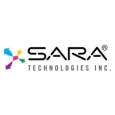Top Augmented Reality & Virtual Reality Companies in San Diego
Are you Searching for Top AR & VR developers? BusinessFirms has accumulated Top virtual reality & augmented reality development companies in San Diego that provide innovative solutions to clients. Out of the varied options available in the industry, it is a herculean task for prospects to Looking Top Virtual Reality & Augmented Reality application developers. To assist service seekers in their search for geniune AR/VR Let's join, BusinessFirms has mentioned prominent developers of this domain. So, without any second thoughts, survey the following mentioned Top VR Companies in San Diego & AR companies to Looking the right firm for your project.
3 Companies
Sara Technologies, Inc. is a provider of excellent Information Technology services in California, here to share our adept IT skills to meet our clients’ new-generation business needs. During the past 10 years, our company has catered to a broad spectrum of industries, organizations, and service sectors, including state government, tribes, tribal schools, housing authorities, and law firms, among others.
<$25/hr
50 to 249
2007
United States (USA)
Welcome to Origami Studios! Origami Studios gets its fame for developing mobile applications aimed at the 5-star rating and ultimate user experience with the latest technology embedded. We believe in writing success stories for our clients. Our goal is to take your baggage of stress from day one and offer high-end app development with seamless user experience, attractive UI design, top-notch technology, and maintenance. We stand with you at every step.
$25-49/hr
10 to 49
2012
United States (USA)
The company has been on the market since 2013 starting from outsourcing UI and UX design and growing the diversity of services year by year. Now, Digit Web Studios is a full-stack digital agency with all the specialists required for the efficient creative process from scratch.
N/A
250 to 999
2015
United States (USA)


